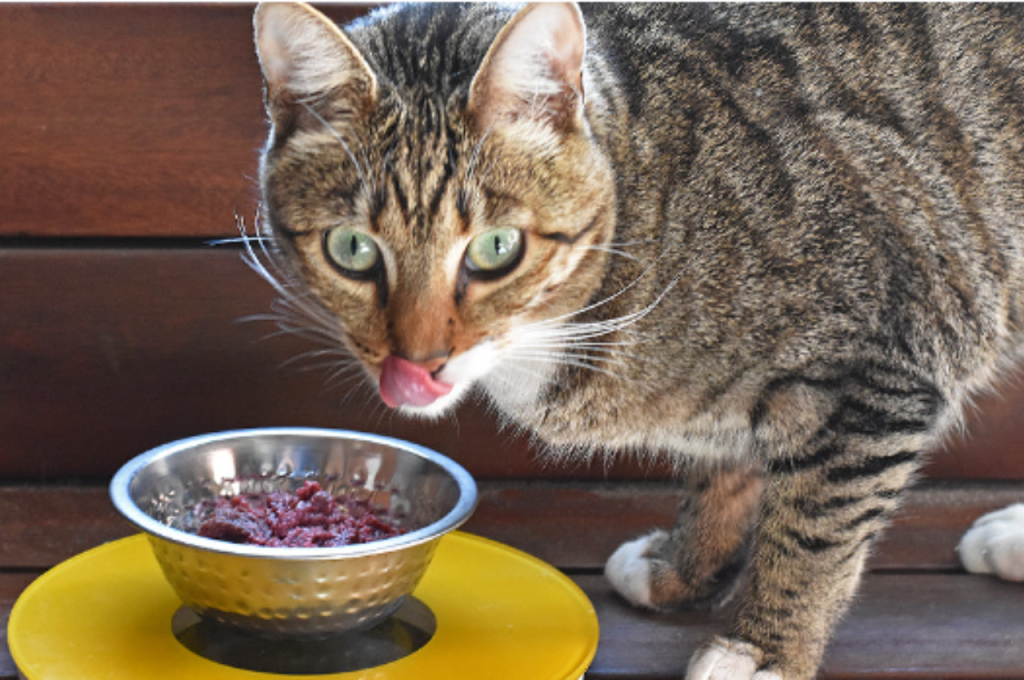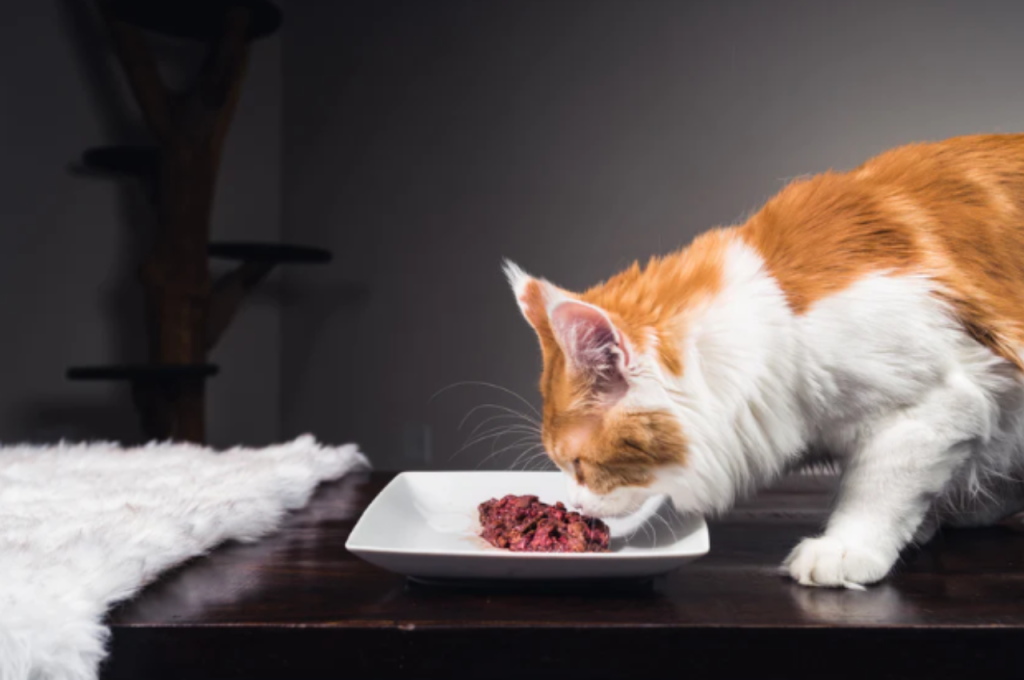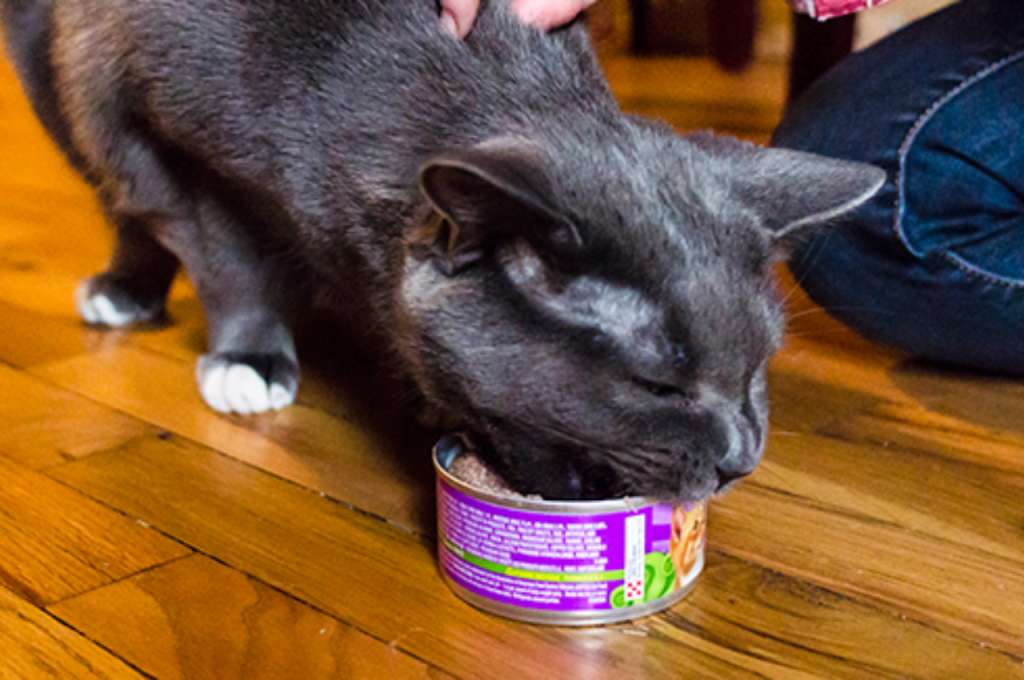The best organ meat for cats is liver and kidney due to their high nutritional value and appeal to feline taste buds. Introducing organ meat into a cat’s diet can provide essential nutrients, such as vitamins A, B, and D, along with minerals like iron and zinc.
The liver and kidney are particularly beneficial as they contain an abundance of these nutrients. Additionally, cats often find the taste of organ meat quite appealing, making it a great option for enhancing their meals. However, it’s important to feed organ meat in moderation, as excessive consumption may lead to imbalances in a cat’s diet.
Include organ meat as a nutritious addition to your cat’s meals, ensuring a balanced diet that keeps them healthy and thriving.
The Importance of Organ Meats for Cats
When it comes to providing a healthy diet for your furry friend, it’s essential to consider the importance of including organic meats in their meals. Organ meats, such as liver, kidney, and heart, offer numerous nutritional benefits that can greatly contribute to your cat’s overall well-being. In this article, we will explore the reasons why organ meats are essential for cats and delve into their impressive nutritional profile.

Nutritional Benefits of Organ Meats
Organ meats are packed with a wide array of essential nutrients that cats require to flourish. These nutrient powerhouses are rich in vitamins, minerals, proteins, and healthy fats that play a vital role in maintaining your cat’s health and vitality.
Here are some key nutritional benefits of including organ meats in your cat’s diet:
- High in Vitamins: Organ meats are excellent sources of various B vitamins, including B1, B2, B6, and B12. These vitamins are essential for metabolic functions, nerve function, and maintaining healthy skin and coat.
- Minerals Galore: Organ meats are also abundant in essential minerals like iron, zinc, phosphorus, and selenium. These minerals are crucial for bone health, immune system support, and oxygen transport within the body.
- Amino acids: Organ meats provide an ample supply of essential amino acids that cats require for proper growth, repair, and overall well-being.
When compared to muscle meat alone, organ meats offer superior nutritional value and help ensure your cat gets a well-rounded and complete diet.
Why Cats Need Organ Meats
Cats are obligate carnivores, which means their bodies are specifically adapted to thrive on a meat-based diet. In the wild, cats primarily consume prey animals, and among these, they instinctively target and consume the organ meats first. This instinct is indicative of the vital role that organ meats play in a feline’s diet.
By incorporating organ meats into your cat’s diet, you are:
- Providing necessary nutrients that may otherwise be lacking in muscle meats alone
- Supporting optimal organ function due to the unique blend of vitamins and minerals present in these meats
- Maintaining a healthy and shiny coat
- Boosting your cat’s immune system and overall vitality
- Helping to prevent nutritional deficiencies and associated health issues
Organ meats are not only delicious for your feline companion but are also an essential component of a well-balanced and nutritious diet. By prioritizing the inclusion of organ meats, you can ensure that your cat is receiving all the necessary nutrients for a happy and healthy life.
Best Organ Meats for Cats
Incorporating organic meats into a cat’s diet can provide numerous health benefits due to their high nutritional value. Here are the best organ meats for cats:
Liver: The Nutrient Powerhouse
The liver is an essential organ meat for cats, boasting a wide array of crucial nutrients such as vitamin A, B vitamins, and iron. It also serves as a rich source of protein and taurine, which are vital for a cat’s overall health.
Heart: A Lean Protein Source
Heart is a lean and flavorful organ meat that provides high-quality protein for cats. This nutrient-dense organ is also packed with taurine, selenium, and zinc, promoting heart health and overall vitality for feline friends.
Kidneys: Rich in Essential Nutrients
Kidneys offer a wealth of essential nutrients for cats, including protein, B vitamins, and iron. They are also a valuable source of taurine and aid in maintaining urinary health due to their role in regulating electrolytes.
How to Introduce Organ Meats to Your Cat’s Diet
Introducing organ meats into your cat’s diet is crucial for their overall health. The best organ meat for cats includes liver, kidney, and heart, providing essential nutrients like vitamins A, B, and iron.

How to Introduce Organ Meats to Your Cat’s Diet Organ meats are a nutritious addition to your cat’s diet, providing essential nutrients such as vitamins A and B, iron, and protein. As with any new food, it’s important to introduce organ meats gradually to prevent digestive upset. Here are some tips for successfully incorporating organ meats into your cat’s diet.
Gradual Transitioning
When introducing organ meats to your cat, gradual transitioning is key. Start by mixing a small amount of organ meat into your cat’s regular food. Ensure that the transition is slow to allow your cat’s digestive system to adjust.
Cooking Tips for Organ Meats
When preparing organ meats for your cat, it’s important to ensure they are cooked thoroughly to eliminate any potential bacteria. Avoid seasoning or adding any additional ingredients that could be harmful to your cat. Plain boiling or steaming the organ meats is the best method of preparation. To make the transition smoother, consider chopping or blending the organ meats into smaller pieces that are easier for your cat to consume. This can also help mask the strong aroma that some organ meats have, making them more appealing to your feline friend.
Choosing High-quality Organ Meats
Discover the benefits of feeding your cat high-quality organ meats, such as liver and kidney, which are rich in essential nutrients for optimal feline health. Incorporating these nutrient-dense organ meats into your cat’s diet can support their overall well-being and provide them with a balanced source of natural vitamins and minerals.
When it comes to providing your cat with a nutritious diet, incorporating organ meats is a great way to enhance their overall health and well-being. Organ meats, such as liver, heart, and kidney, are a rich source of essential nutrients like vitamins, minerals, and amino acids that are beneficial for your feline friend. However, not all organ meats are created equal, and it’s important to choose high-quality options to ensure your cat receives the best possible nutrition.
Organic vs. Conventional Organ Meats
When selecting organ meats for your cat, you may come across both organic and conventional options. Organic organ meats are produced without the use of synthetic fertilizers, pesticides, antibiotics, and hormones. They are sourced from animals that have been raised in a humane and natural environment. On the other hand, conventional organ meats may contain residues of chemicals used in conventional farming practices.
While organic organ meats may be a preferred choice for many cat owners looking to provide their pets with the highest quality nutrition, it’s essential to understand that both organic and conventional options can have nutritional benefits. The decision between the two ultimately depends on your personal preferences, budget, and availability of options in your area.
Reading Labels and Understanding Ingredients
When it comes to choosing high-quality organ meats for your cat, reading labels and understanding the ingredients is crucial. Taking the time to carefully evaluate the information on the product packaging can help you make informed decisions about what to feed your feline companion.
Here are a few key points to consider when reading labels:
- Check for transparency: Look for brands that provide detailed information about the sourcing and production of their organ meats. This transparency can indicate a higher level of quality and accountability.
- Source of the organ meat: Ensure the label specifies the specific source of the organ meat, such as chicken liver or beef heart. This can help you determine if it aligns with your cat’s dietary needs and preferences.
- Avoid additives and fillers: Many commercial organ meat products may contain additives, preservatives, and fillers that offer little nutritional value to your cat. Opt for products that have minimal ingredients and avoid those with artificial colors, flavors, and by-products.
- Quality and freshness: Look for organ meats that are labeled as “human-grade” or “fit for human consumption.” This indicates that the product has met stringent safety and quality standards. Additionally, check for a recognizable expiration date or “best by” date to ensure freshness.
By carefully reading labels and understanding the ingredients, you can make confident choices when it comes to selecting high-quality organ meats that meet your cat’s nutritional needs. Whether you opt for organic or conventional options, prioritizing transparency, sourcing, and minimal additives will help ensure your feline friend gets the best possible nutrition from their organic meat diet.
Potential Risks and Precautions
While organ meats offer numerous health benefits for cats, it’s essential to be aware of potential risks and take precautions to ensure your cat’s safety and well-being. Here are some potential risks and precautions to consider when feeding organ meat to your feline friend:
Overfeeding Organ Meats
Excessive consumption of organ meats can lead to nutrient imbalances.
Monitor your cat’s portion sizes to prevent overfeeding of organ meats.
Allergies and Sensitivities
Cats may have allergic reactions to certain organ meats, causing digestive upset.
- Observe your cat for any signs of allergies after introducing new organ meats.
- Consult a vet if you notice any symptoms of sensitivity or allergic reactions.
Incorporating Organ Meats into Homemade Cat Food
When preparing homemade meals for your feline friend, it’s essential to include a variety of protein sources, including organ meats, to ensure a balanced and nutritious diet. Here’s how you can incorporate organ meats into homemade cat food:
Recipes and Meal Ideas
When it comes to homemade cat food, incorporating organ meats can provide essential nutrients for your feline friend.
Balancing Nutritional Needs
Organ meats, such as liver and hearts, offer cats a variety of vitamins and minerals that are vital for their well-being.
With the right balance of organ meats, you can ensure your cat receives a complete and balanced diet.
Recipes and Meal Ideas
- Try mixing liver into a homemade cat food recipe for added flavor and nutrients.
- Incorporate heart meat into your cat’s diet for a protein-rich meal option.
An ideal ratio for incorporating organ meats into homemade cat food is 10-20% of the total diet.
| Organ Meat | Nutritional Benefits |
| Liver | Rich in vitamin A, iron, and essential amino acids |
| Heart | Good source of taurine, an important nutrient for cats |
Ensure proper handling and cooking of organ meats to avoid any risks of contamination.
Commercial Cat Foods with Organ Meats
Cats are obligate carnivores, and their diet should reflect their natural need for organ meats to maintain optimal health. When it comes to commercial cat foods, many brands now offer organ meat varieties to cater to this essential dietary requirement. Let’s take a look at some of the top brands that provide organ meat options for feline friends.

Top Brands Offering Organ Meat Varieties
- ACANA: Known for their high-quality, premium cat foods, ACANA offers a range of recipes that include organ meats such as liver, kidney, and heart.
- Merrick: This brand features a variety of recipes with organ meats, including liver and chicken, crafted to provide essential nutrients for cats.
- Wellness: Wellness cat foods include organ meats like liver and other nutrient-rich ingredients to ensure a balanced and complete diet.
Factors to Consider When Choosing Commercial Foods
When selecting commercial cat foods with organ meats, it’s important to consider various factors to ensure the best choice for your cat’s well-being. Look for:
- Quality: Ensure that the brand uses high-quality, human-grade organ meats in their recipes.
- Ingredients: Check for a balance of organ meats and other essential nutrients in the food to support overall feline health.
- Sourcing: Consider brands that source their organ meats responsibly and sustainably to ensure ethical practices.
- Reviews: Look for feedback from other cat owners to gauge the effectiveness and palatability of organ meat-containing cat foods.
- Veterinarian Recommendations: Consult with your veterinarian to ensure the selected commercial food meets your cat’s specific nutritional requirements.
Conclusion
Incorporating organic meats into your cat’s diet can provide numerous health benefits. From the nutrient-rich liver to the heart, kidney, and more, these superfoods are packed with essential vitamins and minerals. Not only do they support your feline friend’s overall well-being, but they can also enhance their immune system, promote a healthy coat, and even boost energy.
So, consider adding a variety of organ meats to your cat’s meal rotation, ensuring a balanced and nutritious diet. Your furry companion will thank you for it!
